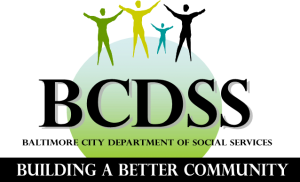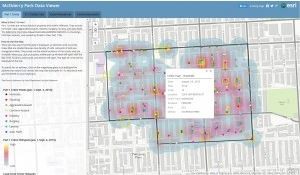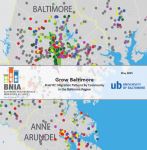Local Government Projects
Baltimore City Department of Social Services – Independent Verification Agent
 On October 9, 2009 the United States District Court for the District of Maryland entered a modified Consent Decree in the matter of L.J., et al v. Massinga, et al. (the “Decree”). The Decree outlines a comprehensive approach to the care of children in foster care with the Maryland Department of Human Services (DHS) and the Baltimore City Department of Social Services (BCDSS). The Decree identifies 5 Outcome Areas and includes 86 Internal Success Measures and 40 Exit Standards, which are the specific performance measures and associated targets that BCDSS must meet. BCDSS is required to report to the court on performance of these measures at regular intervals. Once BCDSS has complied with an Exit Standard for three consecutive reporting periods, BCDSS will no longer report to the court on that Exit Standard. BCDSS will have met the requirements of the Decree when it has achieved compliance with all 40 Exit Standards for three consecutive reporting cycles as defined in the Decree.
On October 9, 2009 the United States District Court for the District of Maryland entered a modified Consent Decree in the matter of L.J., et al v. Massinga, et al. (the “Decree”). The Decree outlines a comprehensive approach to the care of children in foster care with the Maryland Department of Human Services (DHS) and the Baltimore City Department of Social Services (BCDSS). The Decree identifies 5 Outcome Areas and includes 86 Internal Success Measures and 40 Exit Standards, which are the specific performance measures and associated targets that BCDSS must meet. BCDSS is required to report to the court on performance of these measures at regular intervals. Once BCDSS has complied with an Exit Standard for three consecutive reporting periods, BCDSS will no longer report to the court on that Exit Standard. BCDSS will have met the requirements of the Decree when it has achieved compliance with all 40 Exit Standards for three consecutive reporting cycles as defined in the Decree.
Rhonda Lipkin, the individual designated by UB, agreed to by the parties, and appointed by the District Court by order dated August 23, 2011 serves as the “Independent Verification Agent” (IVA) and independently verifys that the reports submitted twice a year by DHS and BCDSS in regard to the Internal Success Measures and Exit Standards are accurate, valid, and reliable.
The Jacob France Institute at the University of Baltimore provides technical, statistical, and editorial assistance in the preparation of the final semi-annual reports.
Publications:
- L. J. v. Dallas Independent Verification Agent – Certification Report for Defendants’ 52nd Six-Month Compliance Report
- L. J. v. Dallas Independent Verification Agent – Certification Report for Defendants’ 51st Six-Month Compliance Report
- Anne Arundel Community College TAACCCT (Round 1) Evaluation (2012 – 2015)
McElderry Park Crime Reduction Plan
 In 2013, the Baltimore City Mayor’s Office on Criminal Justice, in partnership with the U.S. Justice Department announced that the East Baltimore neighborhood of McElderry Park announced a planning process through the Byrne Criminal Justice Innovation Grant (BCJI) to develop a data-driven plan for community-based solutions to persistent crime in the neighborhood. The McElderry Park Revitalization Coalition (MPRC) served as the community-based steering committee for the process which comprised of community members, law enforcement, faith-based institutions, businesses, and non-profit organizations within the community of McElderry Park and surrounding neighborhoods.
In 2013, the Baltimore City Mayor’s Office on Criminal Justice, in partnership with the U.S. Justice Department announced that the East Baltimore neighborhood of McElderry Park announced a planning process through the Byrne Criminal Justice Innovation Grant (BCJI) to develop a data-driven plan for community-based solutions to persistent crime in the neighborhood. The McElderry Park Revitalization Coalition (MPRC) served as the community-based steering committee for the process which comprised of community members, law enforcement, faith-based institutions, businesses, and non-profit organizations within the community of McElderry Park and surrounding neighborhoods.
Grow Baltimore
 Mayor Stephanie Rawlings-Blake announced Grow Baltimore in December 2011 with the goal of increasing Baltimore City’s population by 10,000 new households by 2020. In partnership with the Goldseker Foundation, the City aims to target retention strategies using data on former and current residents. Several City agencies and community partners have been working towards this goal independently through their strategies, services, and programs. However, there is a need for a coordinated overarching strategy to achieve the Mayor’s goal of achieving sustained population growth. The Goldseker Foundation funded BNIA-JFI to produce actionable information for the Mayor’s Office, city departments, and local nonprofit organizations to further the Grow Baltimore initiative. An advisory committee formed in 2014 and meets approximately every six weeks to insure that the work proceeds in collaboration and partnership with key stakeholders who will implement policies to more effectively retain Baltimore residents.
Mayor Stephanie Rawlings-Blake announced Grow Baltimore in December 2011 with the goal of increasing Baltimore City’s population by 10,000 new households by 2020. In partnership with the Goldseker Foundation, the City aims to target retention strategies using data on former and current residents. Several City agencies and community partners have been working towards this goal independently through their strategies, services, and programs. However, there is a need for a coordinated overarching strategy to achieve the Mayor’s goal of achieving sustained population growth. The Goldseker Foundation funded BNIA-JFI to produce actionable information for the Mayor’s Office, city departments, and local nonprofit organizations to further the Grow Baltimore initiative. An advisory committee formed in 2014 and meets approximately every six weeks to insure that the work proceeds in collaboration and partnership with key stakeholders who will implement policies to more effectively retain Baltimore residents.
Technical Assistance Services to the Family Investment Administration of Baltimore City Department of Social Services (BCDSS)
Sponsor: BCDSS, Family Investment Administration (FIA)
JFI provides technical assistance in the area of performance measurement and project management relating to CenterStat, the Center Report Card, tracking the performance of BCDSS service providers and other project management tasks, including data analysis, policy analysis and management analysis. The JFI contributes to the development and implementation of new standard operating procedures and best practices.
Reports:
- Quarterly data reports containing information on employment of TANF recipients, by local department in Baltimore City
- Trends in Employment Opportunities for Baltimore City Welfare Recipients
June 2015
Howard County Economic Development Authority
 JFI has delivered to the Howard County Economic Development Authority an extensive list of demographic, business and worker dynamics, transportation, and housing indicators and aggregated and computed source data, adding breadth, depth and value to the indicators and source data already available to and used by Howard County government agencies. JFI’s experienced staff also provided technical assistance and indicator support to HCEDA and the Authority’s County government agency colleagues.
JFI has delivered to the Howard County Economic Development Authority an extensive list of demographic, business and worker dynamics, transportation, and housing indicators and aggregated and computed source data, adding breadth, depth and value to the indicators and source data already available to and used by Howard County government agencies. JFI’s experienced staff also provided technical assistance and indicator support to HCEDA and the Authority’s County government agency colleagues.
